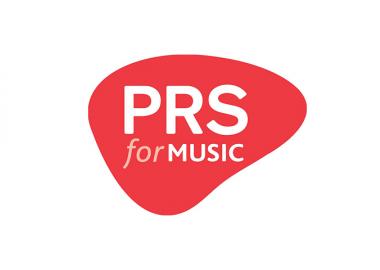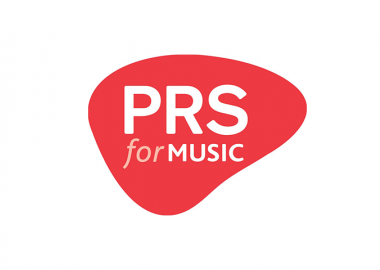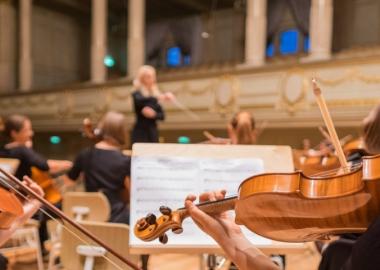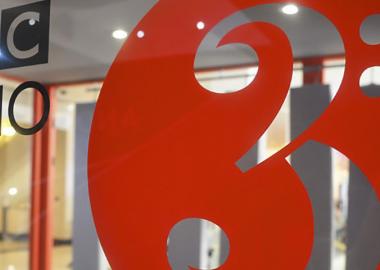When your group decides to perform a piece of music there will be copyright laws, permissions and licenses to be aware of. Part 5 of our guidance looks at how that applies to making and sharing a music recording in either a physical or digital format.
|
There are three different copyrights to be aware of for a piece of music.
- Musical: the copyright of the actual music (notes in a certain order). In the UK a piece of music stays in copyright for 70 years after the death of the creator.
- Literary: the copyright of the lyrics or libretto. The same 70 year rule applies to the lyricist.
- Typographical: the copyright of the published sheet music edition. Typographical copyright lasts for 25 years after the first publication of an edition.
If you are not sure who owns the copyright you can contact the Music Publishers Association
For more information see Part one: What is Copyright?
|
Contents:
- Making a recording - permissions
- Distributing your recordings
- Licensing for CDs and other physically distributed recordings
- Licensing for non-live online content and digitally distributed recordings
- Licensed Third-party Platforms
- Your own website or other third-party platforms
- Making Music recording guidance and discounts
This guidance does not cover livestreaming a performance online or broadcasting an ‘as live’ performance as a premiere. For more information on these licenses, please see Part 6: Live music online.
Making a Recording - getting permission
If you are going to make a recording of a performance there are a few different permissions you need to consider:
You do not need permission from the copyright holder to actually make a recording. You do need permission to distribute the recording (e.g. to make a CD or post online), You get this permission by buying a distribution licence from PRS for Music (see distribution below).
However, some music publishers may ask if you will be making a recording when your hire music, and add a small fee to the hire price. This fee is separate to the distribution licence – which you will still need to buy before you distribute the recording.
If you are going to be recording people performing you should make sure they know about it, and are happy to be recorded.
Whether the performers are your members or professional musicians there are some basic rules to follow:
- Be transparent about your plans to make a recording
- Be clear about the purpose and nature of the recording
- Have documented permission before making a recording
- If someone does not want to be recorded then you should respect that. There is a practical consideration here and the key thing is use rather than the actual recording. It would be ok to record them as part of the whole recording but then edit them out of a final/distributed version.
You can find out more about taking and using video in our GDPR tool kit.
If you’re working with professional musicians there may be additional fees or requirements in terms of how, where and when the recording is used. We have not heard of this being a problem but it is a good idea to clear about your plans as early as possible and including any agreement as part of the contract.
In general you do not need to ask permission from audience members if you are making a video recording of a performance. However, it is considerate to inform your audience that you will be recording during the performance and you should respect any requests not to be filmed (again the distribution/use is the key thing rather than the actual recording).
You can find out more about taking and using video of performers and audience in our GDPR tool kit.
Distributing your recordings
If any of the music you record is in copyright then you will need a licence to distribute it .
The relevant copyrights here are musical and literary, not typographical. If the piece of music you want to record and distribute is in the public domain, then you do not need to pay royalties on your recording, even if you are using a sheet music edition that was published five years ago.
If you are making recordings available that include a visual element (i.e. a video) you also need to consider a licence to cover Synchronization (synch) rights. This is about the right to synchronise the music to images (video or still):
- It is any kind of image – it could be live images of the performers playing/singing, or some unrelated video footage or stills
- It is not about the rights to use the images, it is about the right to set music to those images
Synch rights aren’t always covered by the distribution licence and you might need to obtain these separately. If you are hiring sheet music from a publisher to make the recording the hire fee will often include synch rights. See below for more information on synch rights.
The licence you need to distribute the recording will depend on how you are distributing it. We think there are two licensing areas members need to be aware of:
-
Licensing for CDs and other physically distributed recordings
-
Licensing for non-live online content and digitally distributed recordings. Non-live content includes:
- A recording of a live performance that is put online for anyone to access whenever they want – e.g. added to YouTube - but not as a Premiere
- Non-live content (e.g. an edited virtual performance video) – even if it is made available as a Premiere.
- Downloadable music files
For live or ‘as live’ content please see Part 6: Live music online. Live or ‘as live’ content is:
- A performance being broadcast online live – viewers are watching the performance in real time
- A performance that has been recorded ‘as live’ and is then made available to viewers at a certain time and (online) place - e.g. a YouTube Premiere
Even with the correct license in place a copyright holder can restrict how their music is used. This most common example of this is music being used to promote something (e.g. a product or campaign) the copyright holder does not want to be associated with.
We do not anticipate this will be a problem for our members. If you use a recording to promote your group we don’t think there is anything to worry about – having the correct licence should be fine. If your recording is promoting, or associated with, something contentious it might be a good idea to get permission from the copyright holder – if you are unsure you can contact us.
-
Licensing for CDs and other physically distributed recordings - Limited Manufacture (LM) Licence
If you make a CD (or other physical product e.g. DVD) you will need a Limited Manufacture (LM) Licence. The cost of a LM licence depends on how many copies of your CD you will make, how many minutes of music are included, and whether your CD includes any other sound recordings which you didn’t record yourself (for example backing tracks).
- If your CD contains only music which you recorded yourself, then you can purchase a Limited Manufacture licence at ‘MCPS-only rates’.
- If your CD contains any recordings which you didn’t record yourself, you will need to purchase a Limited Manufacture licence at ‘MCPS-PPL joint rates’.
Details of LM licence rates can be found on the PRS for Music website. They have detailed FAQS, but we have pulled out some of the key things to be aware of:
A LM licences applies to an album and cannot be transferred. So if you buy a LM licence for 250 copies for your Summer album and only make 150, you cannot use the spare 100 for your Christmas album, you would need a new licence.
You need a LM licence if any of the music on your disc is in copyright. So if you make a CD of 10 tracks, 9 are out of copyright and 1 is in, then you need a licence. However, when calculating the licence fee only count the minutes for the music in copyright.
LM licences are only available for a maximum of 1000 CDs. They can also be used only if you will be distributing your disc directly. If you require more than 1000 units or you plan to sell your disc through a third party, you will need an AP1 or AP2 licence. We don’t anticipate many of our groups needing one of these licences.
It doesn’t matter if you give the CDs away for free – you still need a license.
A dramatcio-musical work is a theatrical show which has music specially written for it. This includes opera, musicals, ballet and some pantomimes and revues.
An LM licence does not cover dramatico-musical works. PRS for Music does not represent dramatico-musical rights holders so permission to record those pieces will need to be sought directly from the copyright owner.
Find out more about dramatico-musical works.
If you decide to have your CD professionally made, your chosen production company may agree to acquire a licence as part of their service.
-
Licensing for non-live online content and digitally distributed recordings
If you are putting musical content online, then you might need a licence.
This resource looks at putting non-live content online. This includes:
- A recording of a live performance that is put online for anyone to access whenever they want – e.g. added to YouTube - but not as a Premiere
- Non-live content (e.g. an edited virtual performance video) – even if it is made available as a Premiere.
- Downloadable music files
If you are making live or ‘as live’ content available online, please see Part 6: Live music online. Live or ‘as live’ content is:
- A performance being broadcast online live – viewers are watching the performance in real time
- A performance that has been recorded ‘as live’ and is made available to viewers at a certain time and (online) place - e.g. a YouTube Premiere
Types of licence
When posting non-live content online it will most likely have to be covered by one of these:
- A third-party platform licence - this means the platform you are using (e.g. YouTube) has a license that covers your content - so you don’t need one.
- Limited online music licence (LOML) - if you are putting your content directly on your website or the third-party platform you are using doesn’t have a licence
Licensed Third-party Platforms
Most platforms our members use have a licence for non-live content, these include
- YouTube
- Facebook
- Instagram
- Soundcloud.
The most popular one that doesn’t is Vimeo (see Your own website or unlicensed other third-party platforms below).
If you make non-live content available via a licensed platform you will be covered by their licence and don’t need to get a licence yourself. You are also covered if you post content to these platforms and then embed that content in your own site.
Making Music recommend using these platforms as the easiest approach to licensing as it takes the responsibility and any licence cost away from you.
Synch rights: generally, the third party platform licenses will include synch rights, but there may be some instances where they don’t, it depends on the licence agreement and to be honest this can be hard to ascertain:
- If you hired the sheet music from the publisher to make the recording, the synch rights will probably have been included in the hire fee (ask them to clarify).
- If you did not hire the sheet music you could contact the copyright holder (publisher) and ask. However, if you are making it available for free it is fair to assume it will be covered by the third party’s licence.
Your own website or other third-party platforms
If you are putting non-live content on your own website or an unlicensed other third-party platform (Vimeo is the most popular unlicensed platform) you need a LOML.
If you don’t know about a third party’s license status check their terms and conditions – and get in touch if you are unsure.
Note: if you are making content available on your site by embedding it from a licenced third party (see above) you are covered by that third party’s licence and do not need a LOML.
The Limited Online Music Licence (LOML)
LOMLs are annual blanket licences that are based on bands. Each band allows for a certain number of streams/views or downloads per year. The more streams/views or downloads per year, the higher the fee.
For most groups band A will be the relevant one, this allows for 45,000 streams and 2,200 downloads per year, and costs £146+VAT. See full information on bands and prices.
Once you have your LOML in place there can be 45,000 streams or views and 2,200 downloads of music in copyright within your license year. This includes all recordings that are on your website during the licensed time period, even if they were added to the site under a previous licence.
Pro-rated options are available, so if you won’t need a licence for a full year then you can get a pro-rated fee, starting from a minimum fee of £73.
You can buy a LOML online from PRS for Music, and you don’t need to tell them what music is available.
You can learn more about the LOML (including higher rate bands) on PRS for Music’s website.
Synch rights: LOMLs do not cover synch rights. If you are setting the music to any kind of image (video or still) you might need to get synch rights separately:
- If you hired the sheet music from the publisher to make the recording, the synch rights will probably have been included in the hire fee (ask them to clarify).
- If you did not hire the sheet music, then you won’t have paid synch rights. Synch rights for TV, Film, adverts are big business for publishers and they take it seriously. Whilst you should technically have synch rights for any kind of music content synched to images that you put online, it’s fair to assume publishers are less interested in things like recordings of live performances or virtual choir / orchestra videos. Especially if it they are free content used to promote leisure time groups. If you are concerned you could contact the copyright holder (publisher) and ask about synch rights, and they can licence the synch rights.
LOML FAQs
Yes – there is no rule relating to duration – even a second of music will require a licence.
This is a bit of a grey area – if they are being sent directly to individuals (i.e. not publically available) then you should be ok.
The technical answer here is probably, but if it isn't for public distribution the risk is small.
A dramatico-musical work is a theatrical show which has music specially written for it. This includes opera, musicals, ballet and some pantomimes and revues.
Posting excerpts of a dramatico-musical work available online is permitted under the terms of a LOML only if:
- The total duration of the excerpts does not exceed 20 minutes (or 5 minutes if the work is a ballet)
- The material in use is not a “potted version” of the original work
- The excerpt(s) do not cover a complete act of the work
If you do not meet the conditions above you should contact the publisher of the work to find out about using the music online.
There are certain other restrictions that apply to the music that can be covered by a LOML. We don't think these are likely to affect our groups but they are described in detail in the Terms and conditions - if you have any questions you can contact us.
We don't anticipate this will be a problem for our groups, but if you plan to use music to advertise third party goods or services (whether on your own website or an external site such as Facebook) you’ll need to get in touch with PRS for Music’s Online licensing team. This includes:
- Using music for online advertising
- Playing background music on a webpage
- Offering music as an incentive to purchase goods or services
If you are using your own recordings to advertise your events or group then we don’t think there is anything to worry about.
You can contact PRS for Music’s Online licensing team on 020 3741 3888 or applications@prsformusic.com.
There are certain other restrictions that apply to the music that can be covered by a LOML. We dont think these are likely to affect our groups but they are described in detail in the Terms and conditions - if you have any questions you can contact us.
Making Music recording guidance and discounts
Our quick guide to making a recording touches on everything from requesting performers’ permission to engaging an engineer.
Making Music members can claim 15% off any recordings made on location with 360 Music, plus a special rate to record a Christmas concert.
We hope you find this Making Music resource useful. If you have any comments or suggestions about the guidance please contact us. Whilst every effort is made to ensure that the content of this guidance is accurate and up to date, Making Music do not warrant, nor accept any liability or responsibility for the completeness or accuracy of the content, or for any loss which may arise from reliance on the information contained in it.










